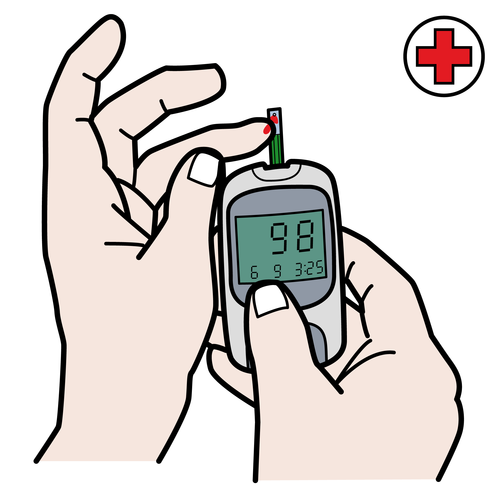Living with Diabetes
Sammy has been living with Type 1 diabetes since he was 13 years old. He was diagnosed at the end of his 8th grade year, and although most 8th graders at this time are excited about moving onto high school, Sammy was worried about the new adjustments he’d have to make. Not only would he have to adjust to a new school, but he’d have to adjust to a whole new way of life-something that isn’t always easy for a teen.
He did his best though, even though most teens find it difficult to adjust to a life with Type 1 diabetes. Each day was different…unpredictable, even. He could have perfect blood sugar levels after eating a pizza on Monday, but have completely different results on Saturday, making it hard to find a “normal” routine of living.
For Sammy, living with Type 1 diabetes wasn’t as simple as an injection of insulin here and there, a finger prick, and a glucose measurement. It was the thoughts and feelings that stemmed from these. Thoughts that he’d be dependent on insulin for the rest of his life…feeling that he wasn’t “normal”, that he was the only teen going through this experience…thinking he’d be a burden to others on days he wasn’t feeling too well from having too high or too low blood sugar levels. But as challenging as living with diabetes can be, it is controllable.
Let’s take a closer look at the facts:

The two most common types of diabetes are:
- Type 1– Your body cannot make Usually caused by genes or other factors, a person living with Type 1 diabetes is dependent on insulin injections or an infusion of insulin via a pump to regulate their insulin.
- Type 2- Your body cannot use the insulin that it makes. Teens are more likely to get Type 2 diabetes if they are overweight/obese, are not physically active, or have a family member with diabetes.
Why should I take care of my diabetes?
- If you take care of your diabetes, it can help you feel better, provide you more energy, and can lower your risk of other health problems such as high blood pressure and high cholesterol.
What can I do to take care of my diabetes?
- Keep your blood sugar levels as close to normal as you can. Your doctor will tell you what levels are best for you and will teach you how to properly check your blood sugar with a glucose meter.
- Learn what makes your blood sugar too high or too low. Carbs are a good source of energy for our bodies, but too much at one time can cause your blood sugar level to rise. Being sick or stressed can also increase your blood sugar levels. Being overweight can also lead to increased levels.
Tips for Teens with Diabetes:
- Get moving! Physical activity is good for everyone, whether you have diabetes or not! Go for a walk, play a sport, and limit your TV/computer time to less than 2 hours a day. Being active with friends and family makes it more fun! Take a walk after dinner or walk to and from school with friends.
- Make healthy food choices! Choose fruits and veggies, whole grain breads and rice, low-fat meals, and beans. Bake, broil, or grill your food instead of frying. Eat breakfast, lunch, dinner, and a healthy snack, and try to eat them at the same time every day.
- Be at a healthy weight! Eating smaller servings and being active can help you control your blood sugar levels and prevent excessive weight gain. If you are unsure, ask your doctor what a healthy weight is for you.
- Take your medicine! Teens with Type 1 diabetes need insulin. Teens with Type 2 diabetes may also need to take insulin or pills. Be sure to take your medication as instructed.
- Check your blood sugar regularly! Your doctor will teach you how to check your blood sugar levels at home with a meter. It may even help to keep a daily log of your levels and a list of your food choices and activity with each measurement.
- Ask for help! Everyone feels down at times, but don’t let diabetes keep you down. Talk to your family, friends, other teens, and your health care team. Write down your feelings. Tell your school nurse and school counselor about your diabetes and give them a copy of your diabetes care plan. You can even ask your health care team about a support group or find one online.
The CDC offers great resources for teens living with diabetes. Check out http://www.cdc.gov/diabetes/ndep/people-with-diabetes/resources/for-children-teens.html for more information!
Also, check out https://www.niddk.nih.gov/health-information/health-communication-programs/ndep/living-with-diabetes/youth-teens/active/Pages/publicationdetail.aspx for more tips for teen living with diabetes!
[social_link type=”twitter” url=”https://twitter.com/teenhlthmatters” target=”” ][social_link type=”facebook_account” url=”https://www.facebook.com/TeenHealthMatters/” target=”” ] [social_link type=”instagram_account” url=”https://www.instagram.com/teenhealthmatters_/” target=”” ]
